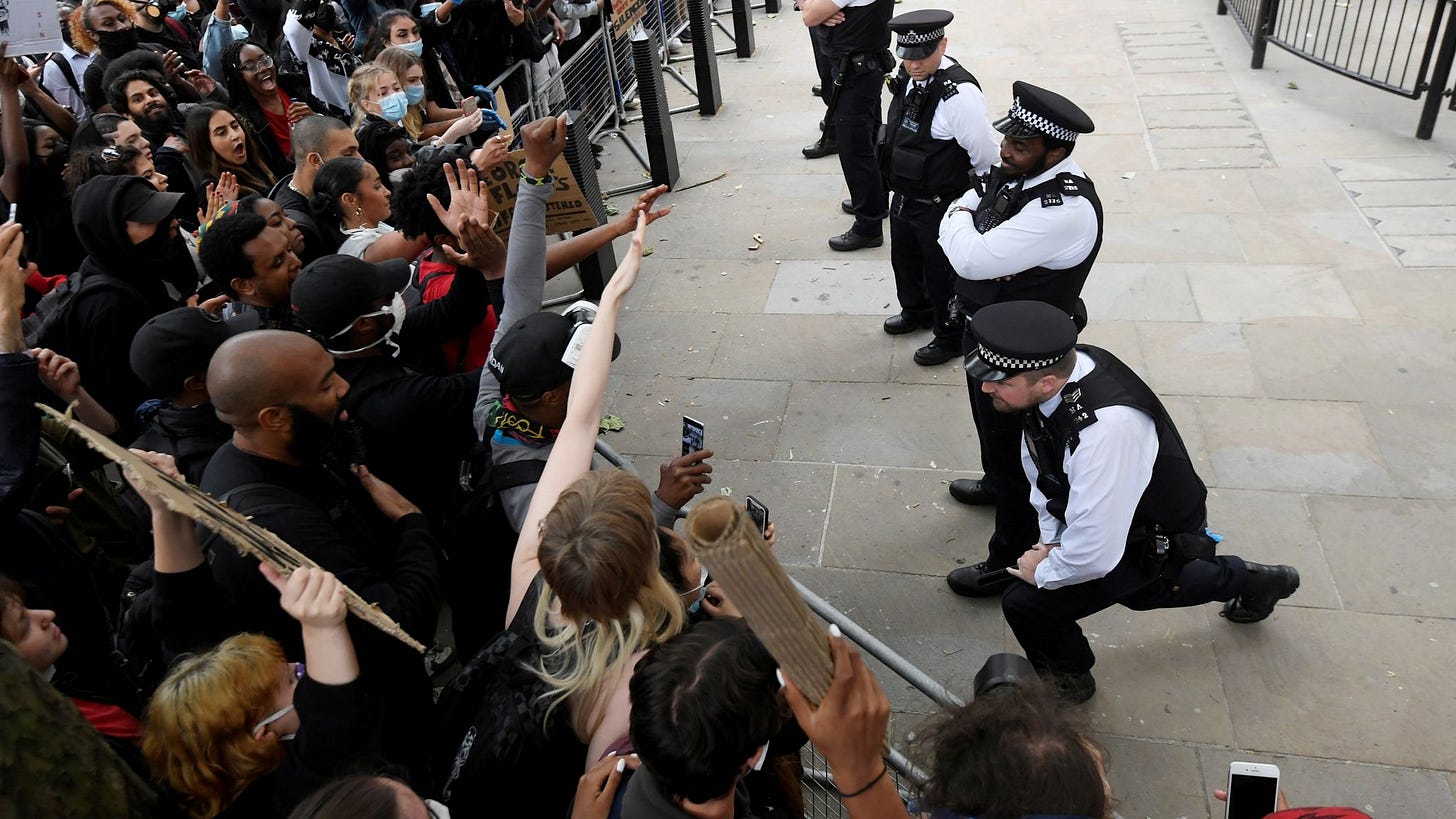The Abolition of Gender and its Consequences
21 years after his passing, Ivan Illich makes a belated comeback
Over forty years after its publication, Ivan Illich's Gender appears to be finally having its day. Illich ran up against the prevailing winds of second-wave feminism, the proponents of which generally dismiss any and all gender-roles as intrinsically restrictive and oppressive; as a result Illich went from being one of the best-known alternative intellectuals of the late 20th century to something of a pariah.
Illich, however, was quite accustomed to being an outcast, so I should expect he took it in his stride. Born to a Jewish mother and a Catholic father in 1920s Vienna, his family fled to Italy in 1942 to escape Nazi persecution. After being ordained as a priest in 1951, he delivered his first Mass in the underground tunnels that provided shelter for the early Roman Christians while hiding from the authorities; in the 1970s, he voluntarily renounced his priesthood, after a CIA report on him came to the attention of Vatican authorities, and he was called to Rome for questioning. He regarded education and medicine as two of the primary vectors of dehumanization and state-control; he passed away in Germany in 2002, having refused medical treatment for a malignant tumour on his face.
Krishnamurti is quoted as saying: “It is no measure of health to be well adjusted to a profoundly sick society.” I might draw that out a little bit further, and suggest that it is no measure of integrity or insight to be heavily celebrated in such a society either. With that, Illich's outsider-status can only be to his credit; witness Noam Chomsky's career for a painful example of the opposite polarity.
Having said all of that, Good Ideas can only remain on the fringe for so long, as the consistent failure of Bad Ideas creates a centripetal vacuum pulling them inwards. Illich's work has been undergoing a quiet revival of late, appropriate to a man of his gentle and thoughtful temperament, and the considered writings of L.M. Sacasas and David Cayley have done much to bring the man's work to a new context and platform. It was only a matter of time until people rediscovered the unfairly-jettisoned Gender, so I was pleased to see it referenced in Mary Harrington's long-form debut Feminism Against Progress, especially as I recommended it to her during our podcast conversation in 2021; good on you for following up on that, Mary.
In Feminism Against Progress, Harrington updates the primary thesis of Illich's Gender for a 21st-century context: that industrial society has eroded the discrete social and economic spheres that belonged to men and women, and that said process has been particularly harmful for women. Illich's thesis was in need of recontextualising, because in 1982 the extraordinary cultural-blitzkrieg of transgender ideology that has taken place in the past decade would have been almost unthinkable, if not incomprehensible.
An intriguing perspective on this general thesis is also present in John Michael Greer's recent blog-post 'On Magic, Manhood, and Masculism', which addresses the occult aspects of gender, before moving onto the issue of how men and women agitate for their own interests in modern society. Greer makes the point that the post-war rise of the American suburb destroyed much of what was left of women's social clubs and lodges by uprooting families into featureless suburbs devoid of anything but housing for other uprooted families, a dreary landscape that James Howard Kunstler has memorably described in his titular debut book as the 'Geography of Nowhere'. Wives were told to stay at home and do hoovering all day while their husbands worked, a boring and unsatisfying arrangement that fed into the anger of the second-wave feminist movement of the 1960s and 70s. How much this can be related to changes that took place outside of North America is debatable; for instance, post-war British suburban developments were not quite as sprawling and isolated as they were in America, but then, the British have been getting pulled into the eddies of American culture since the end of the war, regardless of whether they had any real applicability here.
Greer, in his typically measured fashion, goes on to assess the rise of contemporary 'masculism' as paralleling the rise of feminism in the latter half of the 20th century. Simply being able to assess these sorts of movements on their own terms, outside of value-judgements on who is 'right' or 'wrong', gives one a certain vantage point. With this perspective, it is possible to view them as inevitable reactions to the social cluster-fuck of modernity. Illich was right, but he failed to predict the ways in which the ways in which men have also been compromised by industrial society; once you take men and women out of their distinct spheres, it turns out that society becomes a multi-sided tug-of-war between an indefinite number of sometimes-overlapping interest groups.
In the background to this is, of course, the technocratic state itself; a society in which men and women hate and distrust each other is a society that is much easier to control. Financial whistleblower Catherine Austin Fitts once made the point that men and women in co-operation are much harder to dupe than either men or women on their own, so the impetus for the control-freak is to make sure those relationships are either non-existent or deeply unhappy. There's a reason why Andrew Tate is being pushed on young men; if he was the sort of threat to 'the matrix' that he claims to be, he would simply slide out of the algorithm altogether. Whether he knows it or not, or whether he is indeed as startlingly idiotic as he behaves, he performs a very important function in what he calls 'the matrix', because he ensures that many of the young men who hang on his every word will have a very hard time forming healthy relationships with women. Would you take relationship advice from a glorified pimp and expect good results?
As does the right hand, so does the left. If you've been to London recently, you've probably observed the number of bizarre 'anti-harassment' adverts, effectively telling women that everything down to and including 'being paid a compliment by a stranger' is a form of violence and to regard every post-pubescent male as a potential threat. Forgive me for my cynicism if I note that none of the institutional bodies signing off on this hysterical fear-mongering are exactly known for their prioritizing of women's safety; are they going to mention the threat posed by autogynephilic males invading women's spaces for sexual gratification? Or indeed the problematic changes to street culture posed by opening the borders to hundreds of thousands of brutalised young men from impoverished, war-torn and socially conservative countries? Somehow, I doubt it.
This may or may not be the result of a coordinated effort in perception-management; in any case, it is certainly consistent with Jacques Ellul's view that:
An individual can be influenced by forces such as propaganda only when he is cut off from membership in local groups... An individual thus uprooted can only be part of a mass.
Reading Illich side by side with Ellul, a picture develops with a more granular detail. Illich refers to 'vernacular gender' as a socially-percolated understanding of fundamental difference that was supplanted by what he calls 'economic sex':
An industrial society cannot exist unless it imposes certain unisex assumptions: the assumptions that both sexes are made for the same work, perceive the same reality, and have, with some minor cosmetic variations, the same needs.
I propose that the abolition of gender is a necessary pre-requisite for the development of the propagandised mass, and the fact that so many propaganda campaigns focus on a perverted expression of gender would appear to support this. While it would be utopian folly to suppose that relations between men and women have ever been uniformly harmonious – while Adam delved and Eve span, I'm pretty sure they still bickered over stupid things – what we are seeing now is a situation in which such bickering would be prevented by the fact that Adam and Eve might not even meet each other, because Adam would be a depressed MGTOW-incel, and Eve would be terrified of violent men paying her unsolicited compliments on public transport. Neither of them would be inclined to leave their houses (or pods), because it would be much less frightening just to consume more corrosive propaganda on the internet and get Ocado to deliver one's groceries.
While the details of that type of scenario are obviously still confined to relatively extreme cases, the drift towards genderlessness will have some pretty serious effects on future birth-rates, to say nothing else. I can confirm from personal experience that zoomers are becoming habituated to referring to everyone as “they/them” in case they “accidentally misgender” someone; could Illich have ever predicted such a triumph for the industrial system and its imposition of economic sex? The slow-motion train-crash of the fossil-fuel economy will ultimately consign this madness to the oblivion of memory; in the meantime, we should probably learn how to re-gender ourselves.







I note that a popular chain selling infant clothing, buybuyBaby, is now closing here in the States.
Excellent insights brother! It's refreshing to hear your succinct description of this process of economic gender corrosion. It was you in fact that put me on to Ellul. It was a great gift. I will investigate the works of Illich as I respect your recommendation. Look forward to speaking soon man.